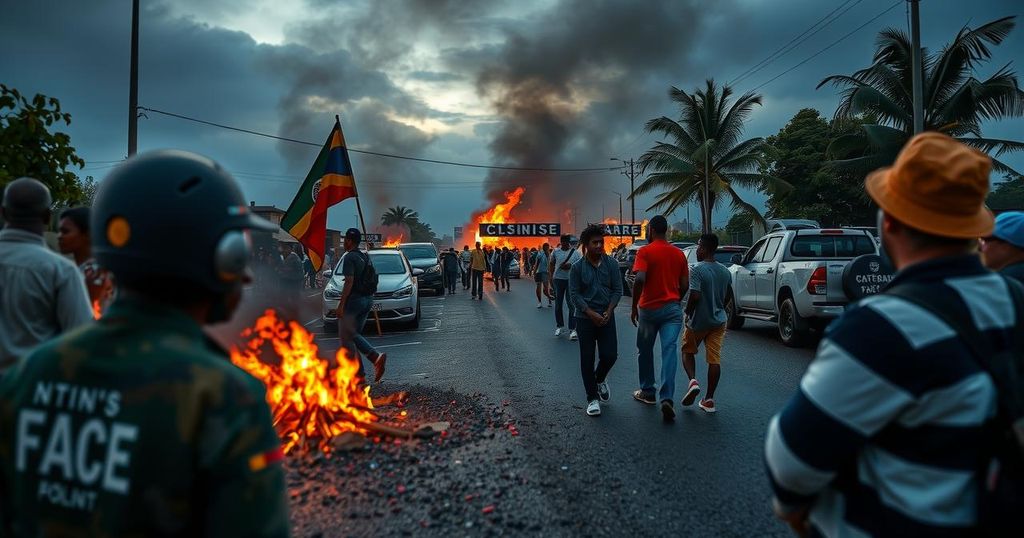Mozambique Protests Escalate After Controversial Elections as Violence Erupts
Mozambique is experiencing widespread protests following the controversial elections on October 9, where the ruling FRELIMO party faced accusations of fraud. Opposition leader Venancio Mondlane has mobilized demonstrators amid a violent government crackdown, leading to considerable casualties. The conflict has also resulted in the closure of the Lebombo border crossing to South Africa due to unrest involving vandalized trucks, exacerbating humanitarian concerns for stranded drivers.
Protests persist in Mozambique following the contentious elections on October 9, where the ruling FRELIMO party faced allegations of electoral fraud. Opposition leader Venancio Mondlane, representing the PODEMOS party, expressed a belief that Mozambique is on the brink of a historical transition, urging citizens to engage in demonstrations. The government’s security response included tear gas and reports of gunfire against protesters, resulting in multiple casualties and increasing tension on the ground. Despite efforts by the government to suppress dissent, including intermittent internet outages, the protests have evolved, leading to creative forms of resistance, including citizens banging pots to express their grievances. Following vandalism incidents involving trucks from South Africa, the Lebombo border crossing has been closed, affecting hundreds of drivers who are now receiving assistance from humanitarian organizations.
The situation in Mozambique has escalated following the recent elections, which have sparked outrage among the opposition and widespread unrest among the populace. FRELIMO, which has led the nation since its independence, won the elections, yet the legitimacy of the results has been questioned. The calls for protests from Mondlane underscore a broader desire for change within a political landscape that many perceive as stagnant and fraudulent. The implications of the ongoing violence and government repression are significant, with concerns voiced by various professional associations regarding the potential for further escalations in violence and unrest.
In conclusion, the protests in Mozambique signify a growing discontent with the current regime and an unwavering demand for accountability following disputed electoral outcomes. The situation remains volatile, as governmental attempts to constrain public dissent have only exacerbated tensions. The essential nature of these protests reflects a pivotal moment in Mozambique’s political history, hinting at a population eager for reform and willing to challenge the status quo.
Original Source: www.fides.org




Post Comment